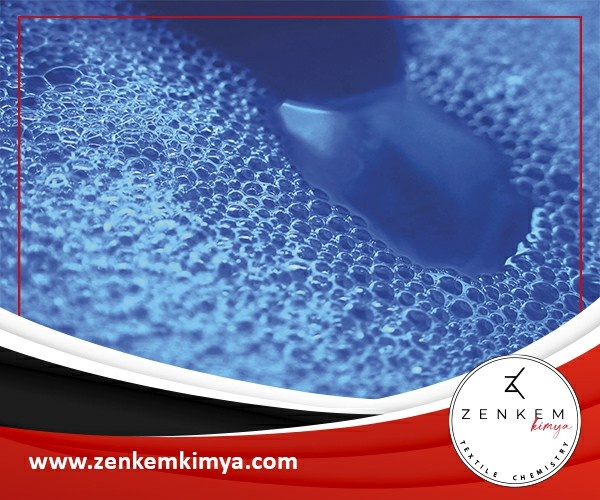Defoamers and Their Impact on Reducing Foam in Liquid Systems
The Role of Defoamers in Enhancing Item Quality and Performance
Defoamers offer as necessary ingredients that mitigate this problem, ensuring smoother production operations while improving the aesthetic and practical qualities of the last products. The option of the ideal defoamer can be crucial to accomplishing ideal results, elevating crucial inquiries concerning formulation compatibility and performance metrics that warrant more expedition.
Comprehending Defoamers
Recognizing the role of defoamers is crucial for preserving product high quality throughout different sectors. Defoamers are chemical ingredients developed to decrease and stop the formation of foam in liquid systems, which can negatively affect procedures such as mixing, filling, and surface stress. Lathering can cause inefficiencies, product issues, and endangered visual allure, making defoamers a crucial part in manufacturing procedures.
In commercial applications, defoamers assist to enhance item consistency and stability. The reliable usage of defoamers not just guarantees smoother manufacturing processes but likewise adds to exceptional product efficiency.
Additionally, the option and solution of a defoamer should line up with specific application demands, such as compatibility with various other components, performance under differing temperature level and pH problems, and potential regulative restraints. Ultimately, comprehending defoamers' functions and their relevance in numerous solutions is crucial for optimizing production and guaranteeing the finest final result.
Kinds Of Defoamers
Defoamers can be classified into a number of types based upon their structure and system of activity. The primary kinds include silicone-based, non-silicone natural, and inorganic defoamers.
Silicone-based defoamers are among one of the most effective, mainly due to their ability to spread out promptly on the fluid surface area and interrupt foam development. Their distinct chemical structure enables exceptional security, making them appropriate for high-temperature applications and environments with varying pH degrees.
Non-silicone organic defoamers, commonly made up of fatty acids or natural oils, are valued for their biodegradability and reduced poisoning. These are typically used in food and drink applications where safety and ecological effect are critical.
Not natural defoamers, which consist of materials like talc or calcium carbonate, act by enhancing the density of the fluid, thereby decreasing foam security. They are usually used in commercial processes where compatibility with various other materials is not a problem.
Each kind of defoamer has distinctive advantages and restrictions, enabling for tailored remedies depending on the specific frothing issues run into in various applications. Recognizing these differences is essential for optimizing performance and attaining preferred product quality.
Applications Throughout Industries
Numerous markets leverage defoamers to boost item top quality and functional effectiveness. In the food and drink industry, defoamers are essential in processes such as brewing and dairy production to avoid foam development, which can bring about inefficiencies and item inconsistency. By managing foam, suppliers can make certain better yield and a more consistent product.
In the pharmaceutical industry, defoamers play a crucial role in the formulation of liquid drugs, where excessive foam can restrain blending and accurate dosing. Their use aids preserve the honesty of the formulations and facilitates smoother manufacturing processes.
The paint and his response coatings sector likewise depends on defoamers to boost the efficiency of items throughout application. By reducing foam, these additives ensure a smoother coating and boost the aesthetic top qualities of the final product.

Benefits of Utilizing Defoamers
While the application of defoamers differs throughout markets, their advantages constantly boost product top quality and process performance. One significant benefit is the reduction of foam formation throughout manufacturing procedures, which can otherwise cause production delays and disparities in item high quality. By decreasing foam, defoamers allow a smoother flow of products, assisting in a lot more efficient operations and lowering the likelihood of tools malfunctions.
Furthermore, making use of defoamers can boost the appearance and structure of end products. In markets such as finishings, paints, and food processing, extreme foam can jeopardize the aesthetic appearances and total high quality, while the appropriate defoamer application makes certain an uniform coating and preferable attributes. Defoamers can contribute to cost savings by reducing waste during manufacturing and enhancing the usage of raw products.

Selecting the Right Defoamer
Selecting the right click to find out more defoamer is vital for enhancing production procedures and guaranteeing product top quality. The choice of defoamer affects not just the performance of foam control however additionally the total efficiency features of the final item. Elements to take into consideration consist of the kind of application, the chemistry of the solution, and the environmental conditions under which the product will certainly be made use of.
Various industries may require particular defoamer types, such as silicone-based, natural, or polymeric defoamers. Understanding the compatibility of the defoamer with the primary active ingredients is important to stay clear of unfavorable responses that can endanger item stability. Additionally, the defoamer's effectiveness in various temperatures and pH levels must be assessed to make sure consistent performance.
Testing the defoamer in small applications can provide beneficial understandings right into its performance and suitability. Factor to consider of governing compliance, specifically in food, drugs, and cosmetics, is extremely important in selecting a defoamer. Inevitably, a complete analysis of these elements will bring about the selection of a defoamer that not just manages foam effectively yet additionally improves the top quality and performance of the end product.
Final Thought

In final thought, defoamers are necessary additives that substantially boost item quality and efficiency across different industries. The strategic selection and application of defoamers lead to cost savings, maximized source use, and boosted client satisfaction.
Lathering can lead to inefficiencies, item defects, and compromised visual charm, making defoamers a crucial element in making operations.
